#Power and Ethics
Explore tagged Tumblr posts
Text
The Relationship Between Responsibility and Power
The relationship between responsibility and power is a significant topic in philosophy, ethics, and political theory, encapsulating the idea that with greater power comes greater responsibility. This relationship explores how power, which is the ability or capacity to influence or control others and outcomes, inherently involves responsibility—the duty to act ethically, justly, and in the best interests of those affected by one’s actions.
Key Aspects of the Relationship Between Responsibility and Power:
Ethical Obligation:
Moral Duty: Those who hold power are often seen as having a moral duty to use it responsibly. This means making decisions that consider the well-being of others, the potential consequences of actions, and the ethical implications of those actions. The greater the power, the more significant the impact of one’s decisions, and thus the greater the responsibility to act ethically.
Justice and Fairness: Power carries with it the responsibility to promote justice and fairness. This includes ensuring that power is not used arbitrarily or oppressively, and that those in power are held accountable for their actions.
Accountability:
Answerability: Responsibility involves being answerable for the exercise of power. This means that those in positions of power should be transparent about their actions and decisions, and should be willing to justify them to those affected. Accountability mechanisms, such as checks and balances, are often put in place to ensure that power is exercised responsibly.
Consequences of Power: When power is misused or abused, the responsible party should face appropriate consequences. This is crucial for maintaining trust and integrity in any system where power is distributed.
Political and Social Power:
Governance: In political philosophy, the relationship between power and responsibility is fundamental to concepts of governance and leadership. Leaders are expected to use their power to serve the public good, protect rights, and promote the common welfare. Failures in these responsibilities can lead to loss of legitimacy and authority.
Social Influence: Individuals or groups with social power (e.g., celebrities, influencers, or institutions) also bear responsibility for how their words and actions influence public opinion, social norms, and behaviors. This includes the ethical responsibility to avoid spreading misinformation or promoting harmful ideologies.
Power Dynamics:
Imbalances of Power: When there are significant imbalances of power, the responsibility to act ethically becomes even more pronounced. Those with greater power have a duty to ensure that they do not exploit or oppress those with less power. This principle is central to discussions of social justice, human rights, and equity.
Empowerment: Responsibility also involves the obligation to empower others, particularly those who are marginalized or disadvantaged. This can mean sharing power, enabling others to make decisions, and creating conditions where all individuals can exercise their rights and responsibilities.
Philosophical Perspectives:
Spiderman Principle ("With great power comes great responsibility"): Popularized by the Spider-Man comics, this phrase encapsulates the ethical maxim that those who wield significant power must do so with a strong sense of responsibility. It reflects the idea that power should be used for the greater good, rather than personal gain.
Existentialist Views: Existentialist philosophers, such as Jean-Paul Sartre, emphasize that individuals are responsible for the freedom and choices they possess. Power in this context is seen as the capacity to shape one’s own life and the lives of others, with a profound responsibility to make authentic and ethical choices.
Corporate Responsibility:
Corporate Power: In the context of business and corporations, the relationship between power and responsibility is often discussed in terms of corporate social responsibility (CSR). Companies with significant economic and social power are expected to act responsibly toward their employees, consumers, communities, and the environment.
Ethical Leadership: Corporate leaders have a responsibility to use their power to create ethical cultures within their organizations, promote sustainability, and ensure that their business practices do not harm society.
Personal Responsibility:
Power Over Self: On an individual level, everyone has some degree of power over their own actions and decisions. Personal responsibility involves using this power to make ethical choices, consider the impact of one’s actions on others, and take responsibility for the consequences.
Empathy and Compassion: Exercising power responsibly often requires empathy and compassion—understanding the needs and perspectives of others, and using one’s power to support and uplift rather than dominate or harm.
The relationship between responsibility and power is a foundational concept in ethics and philosophy, underscoring the idea that those who have the ability to influence or control others must exercise their power with a strong sense of moral duty, accountability, and justice. This relationship is critical to ensuring that power is used in ways that promote the common good, protect the vulnerable, and maintain social and ethical integrity.
#philosophy#epistemology#knowledge#learning#education#chatgpt#ontology#metaphysics#ethics#psychology#Responsibility#Power#Moral Duty#Accountability#Ethical Leadership#Governance#Social Justice#Power Dynamics#Moral Philosophy#Corporate Social Responsibility (CSR)#Justice and Fairness#Empowerment#Ethical Obligation#Power and Ethics#Existentialism and Responsibility
10 notes
·
View notes
Text
Leader Mindset And The Ethical Use of Power
By Linda Fisher Thornton Ethical leaders understand that their role revolves around adding value for others, not for themselves. They are careful to avoid taking advantage of situations for personal gain or for the gain of their colleagues or friends. This other-centered focus keeps them thinking about how what they do will impact those they serve and others in the community. Having power is…
0 notes
Text
Influence of Power, Wealth, and Social Status on Morality: Unveiling Biases
Discover how power, wealth, and social status shape our moral judgments. Challenge your assumptions and join the journey toward ethical clarity. Don't miss out—subscribe now for more insightful content from Hafsa Reasoner!
#authoritybias#EmpoweredJourney#EthicalBehavior#HafsaReasoner#haloeffect#mediainfluenceonmorality#moralityandwealth#moraljudgmentbiases#philanthropyandethics#powerandethics#SelfAwareness#SelfHelp#socialjustice#socialstatusinfluence#wealthexploitation#authority bias#Empowered Journey#ethical behavior#Hafsa Reasoner#halo effect#media influence on morality#moral judgment biases#morality and wealth#philanthropy and ethics#power and ethics#Self-Awareness#Self-help#social justice#social status influence#wealth exploitation
0 notes
Text

I’m not going anywhere with this but it’s a thought I had.
#game of thrones#tortall#an meme#i just think that in order to do ethical fantasy feudalism you might need an eldritch box that judges your fitness to wield state power
2K notes
·
View notes
Text




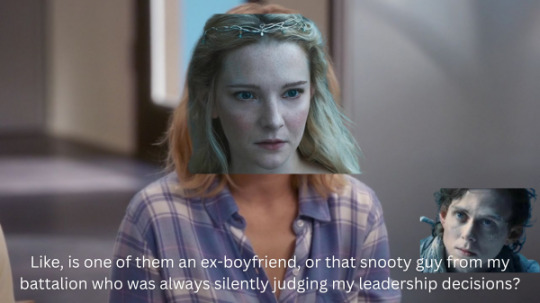
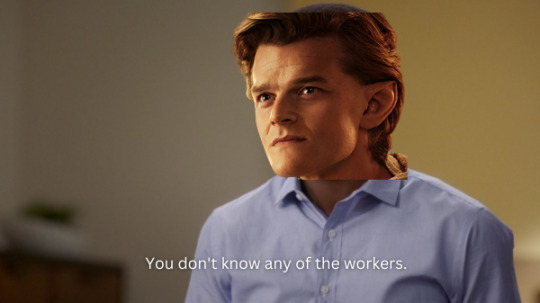





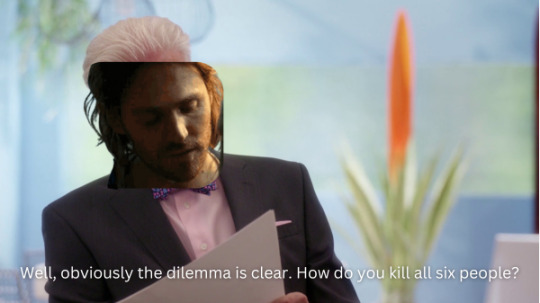


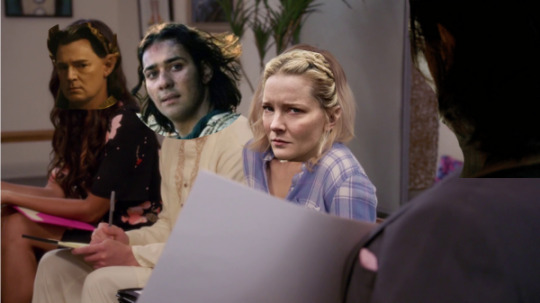
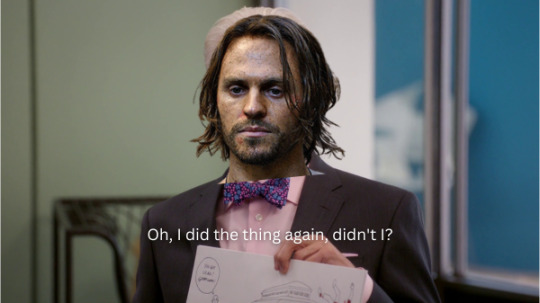
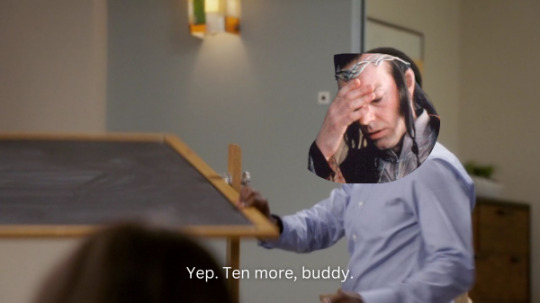

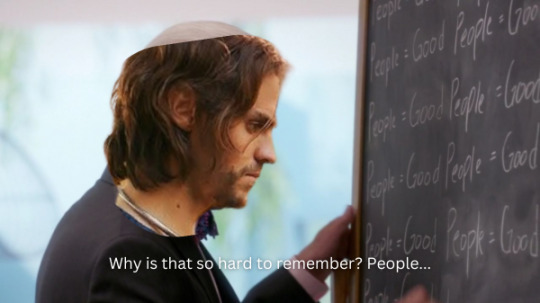
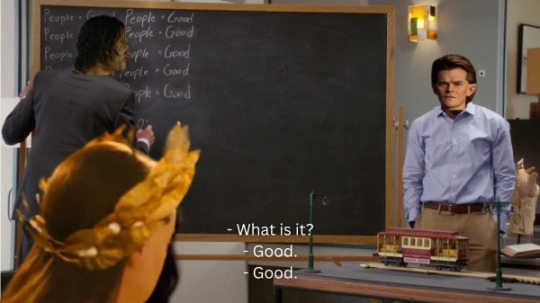
#rings of power#rings of power spoilers#the good place#elrond#halbrand#galadriel#gil galad#isildur#sauron#this popped into my head and i became immediately hysterical#i spent four hours on this#it shouldn't have taken me that long#at one point i realised i had been sitting so still my whole ass was numb#the entire evening i have been cackling at my laptop#when i finished i presented it to my flatmate like a powerpoint presentation#she seems genuinely worried about my mental wellbeing#anyway#tolkein#rop#lotr#ethics#moral philosophy#chidi anagonye#trop#trop spoilers#the rings of power
298 notes
·
View notes
Text
reading what happened to season two of 'the real adventures of johnny quest' really is like. the nightmare fucking scenario. you make one season of a show where you try to bring back an old pulp show but turn it into something grounded and cool without the racism or sexism but with real cool science, and then season two they just hand it over to some guys who are like "yeah we're going to bring the racism and sexism back, also real science sucks so everything is magic now"
#original#this explains something that always confused me which is that i really liked the good episodes but the bad episodes were pure garbage#it was like two different shows#and that's because it functionally was!!#IMAGINE DECIDING THE INDIAN GUY NEEDS TO HAVE HINDU MAGIC POWERS AGAIN. IN THE NINETIES.#season one had race bannon decide to stop working for the cia for ethical reasons and season two is like 'no he loves the cia'
225 notes
·
View notes
Text


I think this right here perfectly sums up Entrapta's character tbh
#my girl cant even remember what ethical dilemma this is#my only question is if this log started before the fright zone or when she got there#entrapta#entrapdak#spop#she ra#she ra and the princesses of power
885 notes
·
View notes
Quote
Oppression tries to defend itself by its utility. But we have seen that it is one of the lies of the serious mind to attempt to give the word “useful” an absolute meaning; nothing is useful if it is not useful to man; nothing is useful to man if the latter is not in a position to define his own ends and values, if he is not free. Doubtless an oppressive regime can achieve constructions which will serve man: they will serve him only from the day that he is free to use them; as long as the reign of the oppressor lasts, none of the benefits of oppression is a real benefit. Neither in the past nor in the future can one prefer a thing to Man, who alone can establish the reason for all things.
Simone de Beauvoir, The Ethics of Ambiguity
#philosophy#quotes#Simone de Beauvoir#The Ethics of Ambiguity#oppression#power#utility#instrumentalism#values#ethics
71 notes
·
View notes
Text
It's interesting that both El and Orion have a deep seated feeling something is Wrong with them, but in El is because of her capabilities, and in Orion is because of his wants.
Orion has a disquiet that his obsession over hunting is kinda fucked up, but he deals with it all right, makes it a positive "saving people" thing, strives to be better when inspired by El.
But El's biggest sin is what she can do, not what she wants to do, and it scares her so badly, so so badly, she's convinced it will turn her evil any day now, and BOY she's not dealing well with it.
#The Scholomance#unfortunately for El she was born with so much power her ethics and morals HAVE to be a step above everyone else's#so her insane self-standards are not entirely wrong.#in a way El's power is the biggest source of trauma in her life#BORN WITH A FLAMETHROWER IN HER HAND. MY BEAUTIFUL GIRL.
55 notes
·
View notes
Text
can't believe karl kessel superboy writing just buried maws lois lane like that. how


imagine getting outdone by misogynist racist karl kessel like I would be so embarrassed
#ramblings#jesncin talks maws#i hate it when fans (and i guess canon too) caricature lois as a kantian truth seeker when being a journalist is also about ethics#there's exposing power hateful people and then there's endangering marginalized people. hell even basic privacy#lois isn't a child she's smart enough to know the difference.
63 notes
·
View notes
Text
Being a biochemistry student is so funny because I’ll be staring off into space and look deep in thought but really I’m just thinking about CRISPR. The Roman Empire of every biochem student
#genome editing my beloved#I’ve been thinking way too much about crispr lately#and also zinc finger nucleases#to quote my chemical biology professor ‘the only real limit of gene editing is ethics’#you’re playing god#you’re engineering a living organism however you want#the power trip of it is absolutely insane
432 notes
·
View notes
Text
The Philosophy of Political Philosophy
Political philosophy is the branch of philosophy concerned with concepts like power, justice, liberty, authority, rights, law, and the state. But when we ask, "What is the philosophy of political philosophy?"—we’re digging one layer deeper. We’re asking: What grounds, guides, and justifies the very project of political thinking itself?
In essence, the philosophy of political philosophy is a meta-philosophical inquiry into why and how we theorize political life, and what that says about human nature, society, and our deepest ethical commitments.
Key Themes
1. Why Do We Philosophize Politically?
Political philosophy arises from the tension between what is and what ought to be in collective life. It emerges because:
Human beings are social and political animals (Aristotle).
Power exists, and its use demands justification.
Conflict, inequality, and cooperation all require interpretation and normative direction.
2. What Justifies Political Inquiry?
The philosophy of political philosophy explores:
Should politics be grounded in reason, tradition, or utility?
Can political principles be universal, or are they always context-bound?
Is the aim of political philosophy truth, justice, order, freedom, or power analysis?
3. What Are the Limits of Political Philosophy?
Some argue that politics is too complex, emotional, or power-laden for philosophical abstraction. Others defend philosophy’s role in:
Challenging oppressive systems.
Envisioning better futures.
Holding rulers accountable to moral ideals.
Meta-Theories within Political Philosophy
Ideal Theory (e.g., Rawls)
Political philosophy should design perfect models of justice or fairness.
Realist Theory (e.g., Machiavelli, Bernard Williams)
Political thought must be grounded in actual human motivations and power structures.
Critical Theory (e.g., Marx, Foucault)
Political philosophy must expose hidden ideologies and systems of domination.
Postmodern/Deconstructive (e.g., Derrida, Lyotard)
Questions the foundations of all grand political narratives and identities.
Key Questions in the Philosophy of Political Philosophy
Can political values be objective, or are they always contested and constructed?
What role should morality play in politics?
Is political philosophy descriptive, prescriptive, or transformative?
How does language, history, and culture shape political thought?
Influential Voices
Plato: Politics must be governed by truth and reason—philosopher-kings rule best.
Hobbes: Political order arises from fear and the desire for security.
Rousseau: Politics must reflect the general will and preserve freedom.
Nietzsche: Political values often mask deeper instincts of domination.
Arendt: Political life is the stage where freedom, action, and plurality emerge.
Rawls: Justice is the first virtue of political institutions, and fairness can be modeled rationally.
Foucault: Power is everywhere—political philosophy must uncover its mechanisms.
Summary
The philosophy of political philosophy is a reflection on the foundations, methods, and purposes of our political thinking. It asks whether politics can be made rational, whether justice can be universal, and what our pursuit of political ideals reveals about the human condition.
It's not just about designing a better society—it's about understanding why we even dream of doing so.
#philosophy#epistemology#knowledge#learning#education#chatgpt#Political Philosophy#Meta-Philosophy#Justice#Power and Ethics#Social Theory#Ideal vs. Realist Theory#Moral Philosophy#Critical Theory#Human Nature#Governance#ethics
1 note
·
View note
Text
miku.. worldwide....? of all the ways I'm joining this trend is...... this?

I think they shot her after?
#i kind of feel like#why would i even#do that#yk#YOU KNOW I JUST THOUGHT WHAT IF SHERA MIKU AND YOU KNOW WHAT#SHERA MIKU IS LIKE#MORE OBVIOUS THING YOU WOULD DO WITH THIS??#THAN FUCKING HORDE SOLDIER MIKU????#okay#tags time#she ra#she ra and the princesses of power#horde prime#hatsune miku#vocaloid miku#miku fanart#miku worldwide#jesus christ#is this even#ethical to put it under miku worldwide tag
199 notes
·
View notes
Text




getting to know each other
they got stuck in the Void(?) for an indefinite period of time…without Ink's brush and vials.. they have nothing to do but talk i guess..(more thoughts in tags)
related to this thing with sci and this red ink thing
#undertale#utmv#ink sans#error sans#comics#in this inerpretation ink creates aus himself#(there are so many interpretions in utmv i'm not sure what is canon anymore lol)#and error destroes only the corrupted ones(also fixes some of them 'cause he's best in dealing with errors lol)#for error ink with creating au just creates potentional suffering for monsters inside#like a “sin of the fatherhood” in my language its a term i'm not sure if this is the same in english#anyway this term contains this ethical question#“do we have the Right to bring an innocent soul into this sinful world and put it into suffering?”#obviously error doesn't think anyone has it#for ink it's more like Plato's “giving birth in the Beautiful”#it's about becoming divine and making everything Beautiful(Good and Truthul) by#bringing forms(ideas) from world of Forms into the material world#by the act of creation#the most powerful act imaginable#love thinking about questions these two are giving me#the abstraction they reached as characters made by fans of one really beautiful game#love it...#ink by comyet#error by loverofpiggies
199 notes
·
View notes
Text
Danse sounds so sultry when he gives you Righteous Authority, “This gun has my…special… modifications” Like Paladin… what did you do to this weapon?
#he’s like immediately smitten in my mind now you like showed dedication to the brotherhood and followed protocol#he’s trying so hard to keep that power suit in like technically it would be allowed because SoSu isn’t a subordinate#or commanding officer so like it’s ethical unless brotherhood can only bone brotherhood#fallout#fallout 4#fo4#paladin danse#Danse
202 notes
·
View notes
Text
Something about a misunderstanding between a pair where one of them is a telepath is so frustrating, like GODDAMMIT, JUST READ HIS MIND
#yes this is about cherik#yes morals and ethics are important#but why do you have your powers if you don't use them#AAAAAAAAAADHDHSJSS#all lighthearted of course#I live for angst#cherik#Charles Xavier#erik lehnsherr#charles x erik#fanfic#x men
120 notes
·
View notes